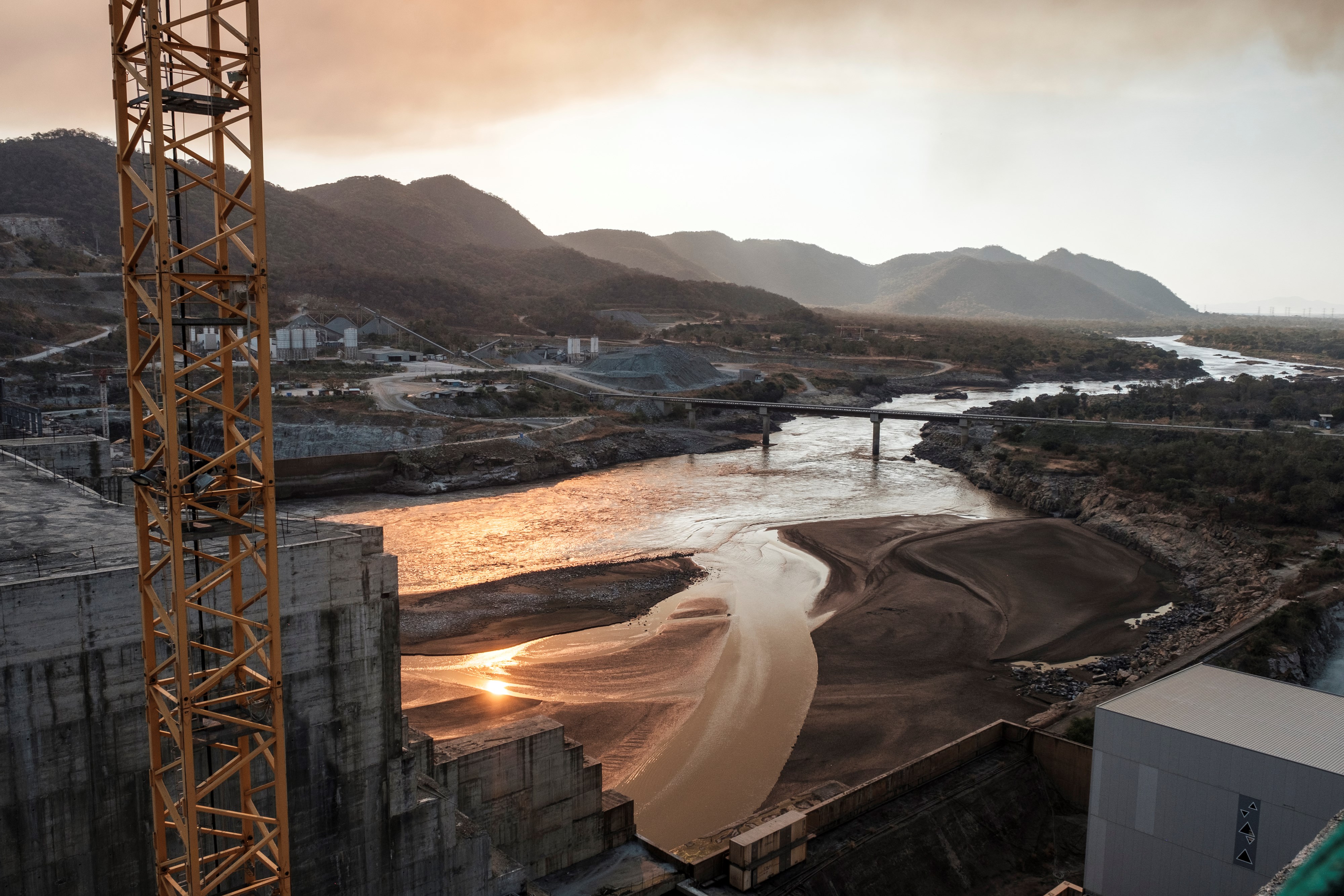Sudan rejects Ethiopia plan to fill Renaissance Dam For the 2nd Time
Senior Sudani official says that the Ethiopian plan on filling the renaissance dam for a second time is not real, describing it as a tool to buy time.
-

Renaissance Dam | Archive.
A Sudani official announced Monday that his country rejected an Ethiopean proposal to fill the Renaissance Dam for a second time that Adis Ababa is building on the Blue Nile, according to Reuters.
The agency said that the Sudanese official said the Ethiopian proposal for the second filling was "not real" and "a way to buy time."
He added that any proposal of such should be under the auspices of the African Union mediators and include all parties.
The Ethiopian Prime Minister, Abiy Ahmed, had spoken of his country's aspiration to fill the Renaissance Dam for the second time in July.
Sudan has asked the United Nations Security Council to hold a session as soon as possible to discuss the developments of the dispute over the Ethiopian Renaissance Dam.
For the first time, Egypt responded to the statements of General Buta Bachata Debele, the Director of the Engineering Department at the Ethiopian Ministry of Defense, who said, "Egypt is unable to strike the Renaissance Dam militarily."
There is an ongoing, severe dispute between the downstream countries, Egypt and Sudan, and Ethiopia, regarding filling and operating the Renaissance Dam. All rounds of negotiations between the three parties have failed to reach an agreement.
The most prominent of these rounds were those held under American auspices. However, the sessions ended without an agreement being signed between these parties, as Ethiopia refused to sign the agreement reached by the negotiations. Over 3 African Union sessions headed by Egypt, South Africa, and Congo, respectively, also failed to push the three countries to agree.
The history of the Renaissance Dam crisis dates back to 2011 when Ethiopia began building it on the Nile River. Since then, no solution has been reached that satisfies all parties, although Egypt and Sudan assert that they are affected by what is considered "unilateral actions by Addis Ababa," in this case, without considering their interests.

 2 Min Read
2 Min Read








